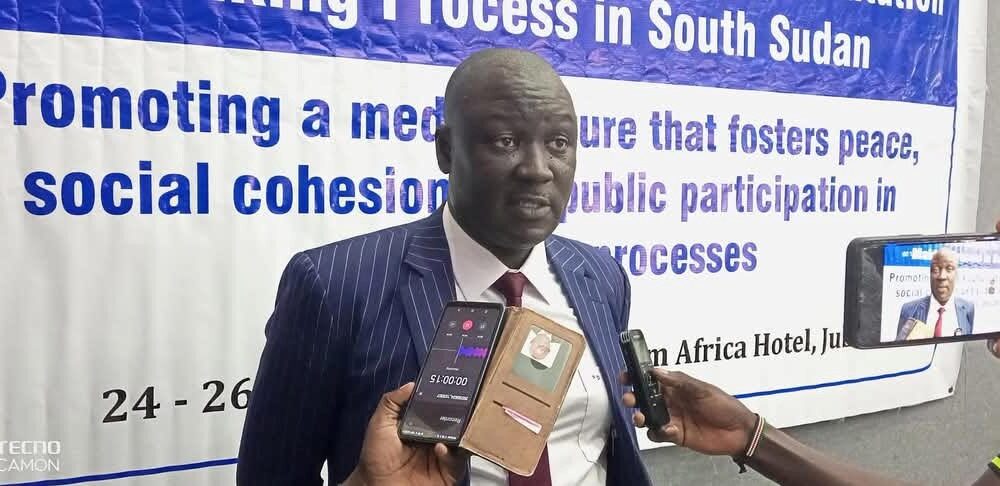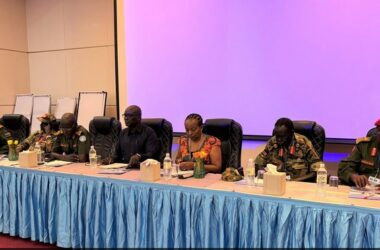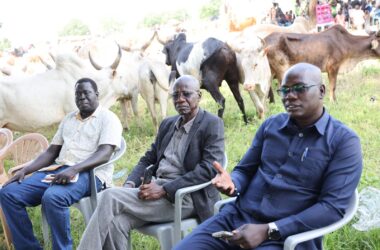By Kei Emmanuel Duku
Union of Journalists of South Sudan (UJOSS), in a collaboration with United Nations Mission in South Sudan (UNMISS) and Japan International Cooperation Agency (JICA), officially commenced a three-day capacity-building workshop for journalists on Tuesday, June 24, 2025.
The training, hosted in Juba, has brought together media professionals from the ten states of South Sudan, as well as two administrative areas of Greater Pibor and Ruweng.
At the opening ceremony, the Minister of Justice and Constitutional Affairs, Dr Mamer Abraham, highlighted the indispensable role of journalists in educating and engaging the public throughout the constitution-making process. His remarks underscored the government’s recognition of the media as a vital bridge between the constitutional review commission and the diverse communities of South Sudan.
Meanwhile, President of UJOSS, Oyet Patrick Charles emphasized that the drafting of a new constitution is a “national partnership.” He stressed the necessity of robust collaboration between media outlets and the National Constitutional Review Commission.
Oyet also called upon participating journalists to proactively ensure that the voices of all South Sudanese citizens are not only heard but also accurately reflected in the constitutional discourse.
“This process belongs to the people,” Oyet stated, adding that “Journalists are key in making sure that every South Sudanese is informed and involved.”
The workshop aims to equip journalists with the necessary knowledge and skills to effectively report on the intricacies of constitutional law, governance, human rights, and public participation, thereby empowering them to fulfil their critical role as facilitators of public discourse and understanding during this pivotal national undertaking.
South Sudan, the world’s newest nation, has been navigating a complex path towards establishing a lasting peace and stable governance since gaining independence in 2011.
A key pillar of this journey is drafting of a permanent constitution, a process essential for defining the country’s legal framework, institutional structure, and the rights and responsibilities of its citizens. Previous constitutional arrangements have largely been transitional, a reflection of the country’s post-conflict environment.
The current push for a permanent constitution is a significant step towards establishing democratic principles and ensuring inclusive governance.
This endeavour requires not only political will but also a well-informed and engaged populace, making the role of the media absolutely critical in disseminating information and fostering public participation.




